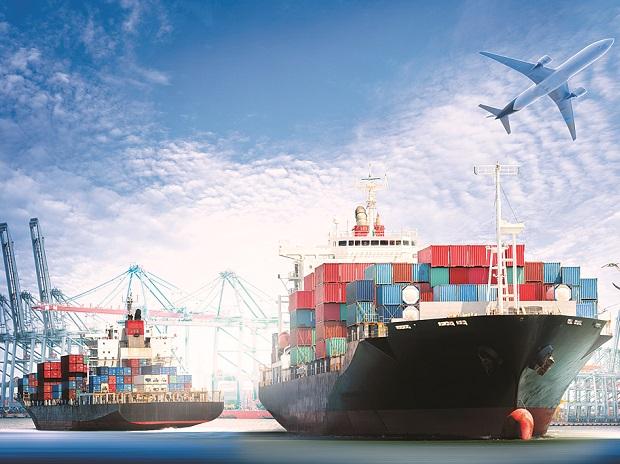
The World Is Not Enough

From time immemorial, survival of the self and the tribe, at any cost, has been the foremost pursuit of mankind, and trade has been used immensely to achieve this. One of man’s first acts of trade was to obtain rare metals and raw materials to build his tribe’s arsenal. This arsenal was to serve several purposes; one of the most important being, attacking neighbouring tribes to obtain their harvest, cattle and lands to sustain personal needs. Similar were the pursuits of the tribes that were on the defensive. Between the attackers and the attacked were the suppliers of rare metals who saw an opportunity for profiteering and traded with both parties for gains.
To date, man’s fundamental wants of rare or essential resources, claims to territory, profits and survival leads him to behave in this archaic manner. The only difference being, he now operates in a world of trade organisations, advanced technologies and tariffs. The entities he commands, and their ventures are confirmed or refuted by statutes laid down by the WTO and the international collective. For mankind, ‘The World Is Not Enough (sic.)’ and it blatantly operates to satiate the fundamental hierarchy of needs.
Ancient
Just as the modern Western civilization was inspired by the culture and institutions in ancient Greece, it also developed the obsession of controlling vital sea routes and strategic maritime choke points from them. The sea being the predominant mode of trade over long distances, has also been the object of dominance and power projection.
In the early first millennium BC, the average Greek farmer was dependent on imports of grain due to the poor topography and geographical configuration of his land. The only producible commodities, wine and olive oil, were traded in exchange for grains from abroad. As the ambitious Greek states prospered and developed as democracies, their demands grew more varied and exotic. The local supply of grain could not meet the growing population’s demand. This led the Greeks to make their way to the Black Sea and the Pontus (Southern Ukraine), where the lands provided grains, cattle and the local populace welcomed Greek goods.
The Hellespont (Dardanelles) and the Bosphorus are two important straits that hold the entry to the Black Sea. Their banks were occupied by rivals of the Athenians time and again to control trade and starve Athens. Through frequent campaigns, Athens managed to keep the straits in its control. The Athenian Navy began patrolling the Black Sea to protect trade, a move unheard-of in the time, giving birth to the concept of a standing Navy. To put it in perspective, the Navy was born with the primary motive of protecting trade.
Medieval
An important turning point in the history of international trade was the advent of Islam. Islam spread with the aim of unifying the ‘Desert People’ and established the middle east as a point of tax and revenue collection rather than a land of raiders and dacoits, in the context of the East-West trade.
The growing influence of Islam, whose rules dictated honest trade practices, saw Muslims dominate world trade and occupy strategic locations. The most significant of their conquests was the capture of Jerusalem and the dominance of the East-Mediterranean. This gave them superior control of trade between the East and the West.
The Christendom was shaken by the capture of the Holy Land and began the Crusades. The Fourth Crusade ended on a note of deceit and betrayal, wherein Frankish troops in their galleys believed their purpose was to liberate the Holy Land, whereas, in actuality, they were headed for Egypt (the weakest point of the Muslim Empire), which was thought to be a better capture by their Commanders. Back home, their religious masters sought Egypt as an important trading partner and leaked to the troops their true destination, causing widespread anger and desertion. Thus, the attack on Egypt never bore fruit.
The benefits of establishing trade with rival parties far outweighed the perceived advantages of a military campaign. This phase of history showed religion dominate trade with military might being second to it. Religion was used as a driver of trade and rival beliefs exchanged goods, exposing the two-faced nature of man in the pursuit of material and necessary commodities.
Modern
Though there are numerous and important phases in the history of international trade, the few that convey the true nature of man’s dealings have been dwelt upon for convenience, considering the limited scope of this article.
No other “tribe” as the British were more accomplished in achieving world dominance in trade. An island nation with a small population was able to capture the international market by aggressive campaigning and the support of a sound navy. They landed on foreign shores and obtained territories and resources through deceitful foreign policy and literal hostile takeovers.
The nature of their conquests and control on the world’s key resources was plain – to fulfil the needs and demands of their home population and provide resources to expand their military and naval might. Foreign soils were exploited with complete disregard for their topography, environment and requirements of the indigenous people. Glaring examples of such misconduct were India, Africa and South-East Asia amongst the territories under their control.
Raw materials and resources were often sourced from colonies to feed the industries back home. The finished products were then sold to the markets and sent overseas to colonies which were a source of vital revenue that financed all their ventures.
The British example only proves man’s greed for resources and the unscrupulous means employed for obtaining them. He has often scammed his way through to rare resources to satiate his needs way beyond the fundamental necessities.
In Perspective
The one important entity missing in the context of world trade (in the contents of this article) is India.
India never needed to attack other states or capture other territories due to abundance of resources and an advanced credit and exchange system that allowed all comforts and amenities to exist here. The goods that were not available locally were obtained through imports and exchanges via Indian port cities that lay on important sea lanes that commanded the Indian Ocean. In the Indian context, there were abundant resources to sustain life, culture and advanced institutions which drew the world’s attention and greed towards us. However, it was the inability of the individual states within to develop a pragmatic maritime outlook that prevented them from bolstering their defences against inimical entities. No doubt, there are lessons to be learnt which have relevance even today.
“Earth provides enough to satisfy every man’s needs but not every man’s greed”. However, in the free world, where it is only a thin line separating necessity from greed, the world, with its abundance, is not enough and man is willing to stake his life for it. All the modern wars have been about control of resources (which translates to territory), and so will they continue to be in future.
Man is now looking to new frontiers, even from celestial entities to “quench” his unsatiable thirst for resources, while competing with his earthly rivals. Even here, there are third parties looking to profiteer and trade for gains.
Man has come a full circle in world trade and seems steadfast in repeating history for the new “seas” he wishes to dominate.
*******************
Reference for image – The Indian Wire
Disclaimer
The opinions expressed in this article are the author’s own and do not reflect the views of Chanakya Forum. All information provided in this article including timeliness, completeness, accuracy, suitability or validity of information referenced therein, is the sole responsibility of the author. www.chanakyaforum.com does not assume any responsibility for the same.
Chanakya Forum is now on . Click here to join our channel (@ChanakyaForum) and stay updated with the latest headlines and articles.
Important
We work round the clock to bring you the finest articles and updates from around the world. There is a team that works tirelessly to ensure that you have a seamless reading experience. But all this costs money. Please support us so that we keep doing what we do best. Happy Reading
Support Us





















POST COMMENTS (0)